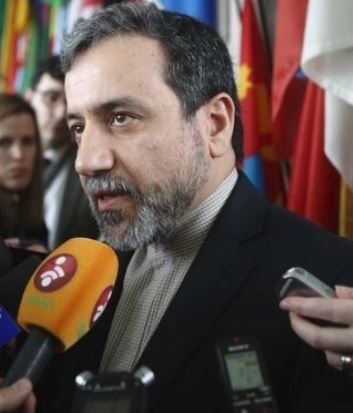By Francois Murphy
VIENNA, March 6– Iran hopes a new trade channel with Europe aimed at cushioning the blow of reimposed U.S. sanctions will be working within weeks, its deputy foreign minister said on Wednesday.
France, Britain and Germany have set up the new mechanism for non-dollar trade with Iran in response to Washington’s withdrawal from the landmark 2015 nuclear deal that lifted international sanctions against the Islamic republic in exchange for restrictions on its atomic activities.
U.S. sanctions aimed at crippling Iran‘s economy and oil industry have resumed, placing the deal in jeopardy, though Iran has continued to comply with the accord so far.
“We hope that in the coming weeks Instex would become operational,” Iranian Deputy Foreign Minister Abbas Araqchi told reporters after a quarterly meeting of parties to the deal, referring to the mechanism’s official name – the Instrument in Support of Trade Exchanges.

For that to happen, Iran must set up a counterparty to Instex that it can trade with. Araqchi said he hoped that would be done before the Iranian new year, which is in two weeks.
Washington has accused European powers of undermining its crackdown on Tehran by trying to break the sanctions.
Instex was conceived as a way to help match Iranian oil and gas exports with purchases of EU goods, but those ambitions have been toned down. Diplomats say that, realistically, it will be used only for smaller transactions such as purchases of humanitarian products or food.
Araqchi disputed that, saying it could expand over time.
“This is for all goods and commodities, not only humanitarian goods,” he said after meeting senior officials from Russia, China, France, Britain, Germany and the European Union.
“But maybe it starts from humanitarian in order to set the patterns for doing business with Iran. And once the patterns are set then other kinds of goods including sanctioned goods and oil of course would be added to this mechanism,” he added.
Iran has threatened to pull out of the deal if it does not receive enough economic benefits.
Araqchi said Instex was “a move in the right direction” but it was not yet clear how much it could achieve.
“It remains to be seen whether it can deliver the job when it becomes operational,” he said, adding that the concept could be copied elsewhere.
“We decided today to create working groups on different areas such as trade, energy, transportation etc in order to find similar mechanisms like Instex in other areas so economic cooperation with Iran can be expanded,” he said.
(Reporting by Francois Murphy; Editing by Andrew Cawthorne)

